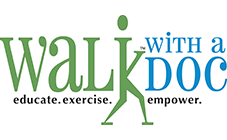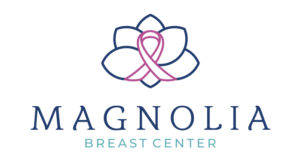Why walk? Studies from the American Cancer Society and the National Cancer Institute have shown a reduced risk for 13 different types of cancer in those who exercise regularly. (1,5) The American Cancer Society recommends that adults participate in 150 minutes of moderate intensity exercise, or 75 minutes of vigorous activity each week. (1,2,5) Many don’t think of walking as moderately intense, however according to the ACS walking 3mph or 20 minutes per mile is considered a moderately intense form of exercise, which helps reduce the risk of cancer occurrence if done at least 150 minutes per week. (1,5)
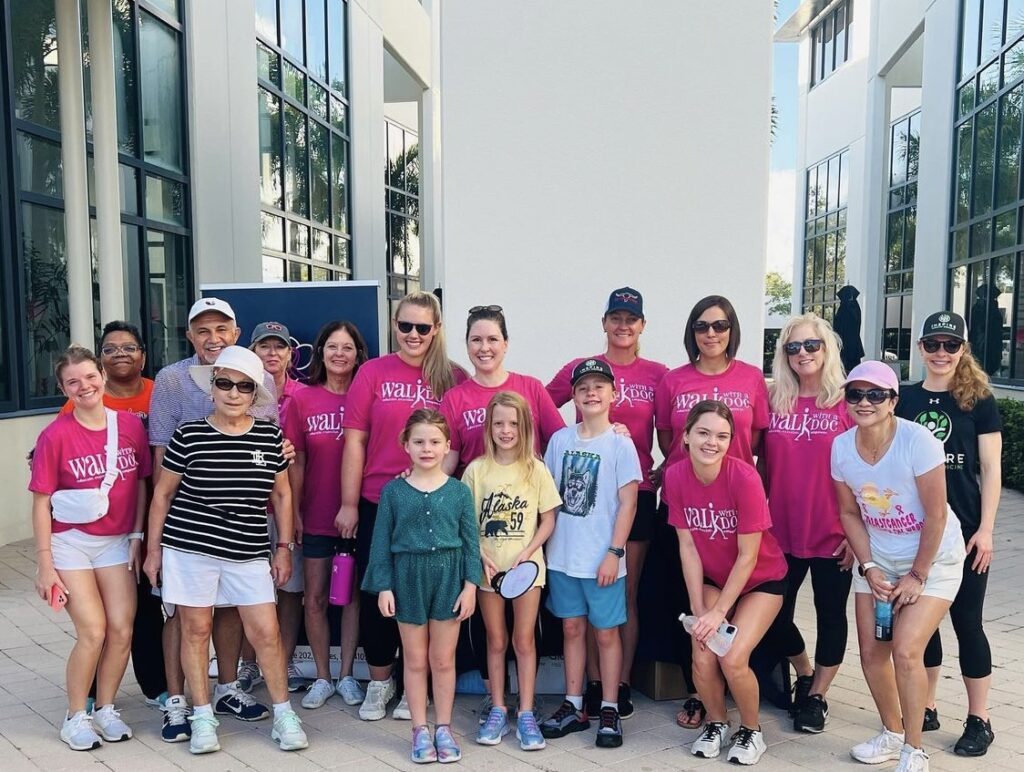
What about breast cancer? Regular and consistent exercise at moderate intensity can in fact reduce risk of breast cancer! (3,5,6) A meta-analysis from 2016 showed women who are more physically active have a 12-21% reduction in breast cancer risk. (3) Reduced risk of cancer is not the only benefit of physical activity. It also has been linked to reduced inflammation, improved immune function, obesity prevention, and other metabolic changes that reduce cancer risk and recurrence. (2,5) In 2019, systematic review of a multitude of observational studies found that physically active breast cancer survivors had a 40% lower risk of death from breast cancer compared to those who were less physically active. (4)
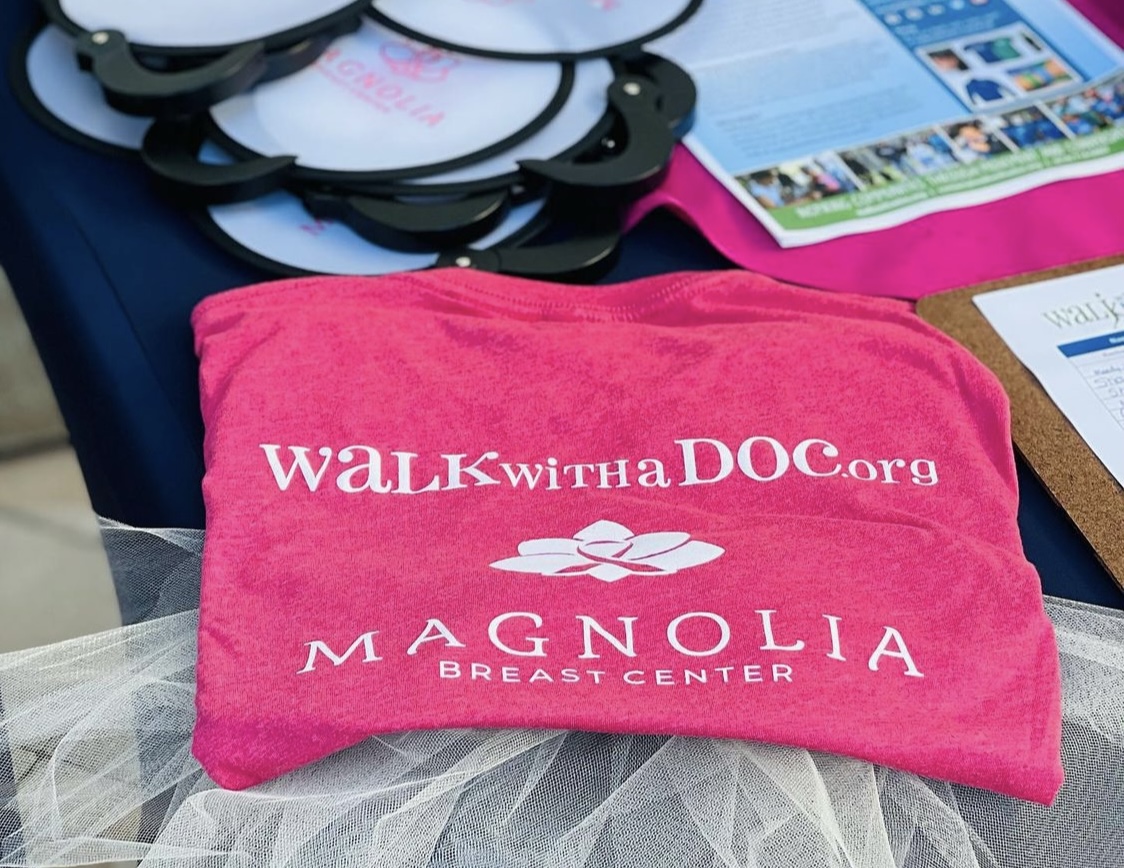
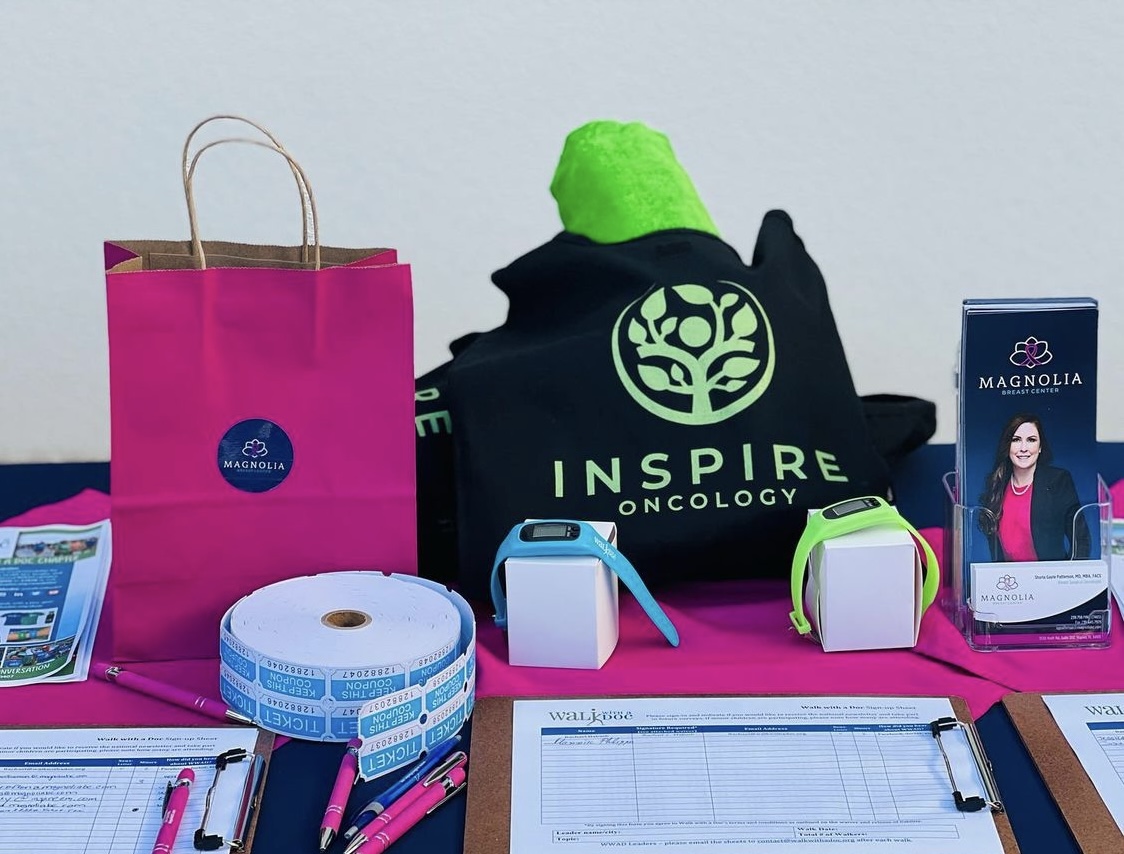
What else can walking do for me? Being physically active, especially exercising together, can be fun! Come find a new love for walking with us, it’s healthy, safe, and free! Also take advantage of this opportunity to have meaningful conversations with other participants and fellow survivors, as well as your very own health care professionals. Come join us and Walk with a Doc!
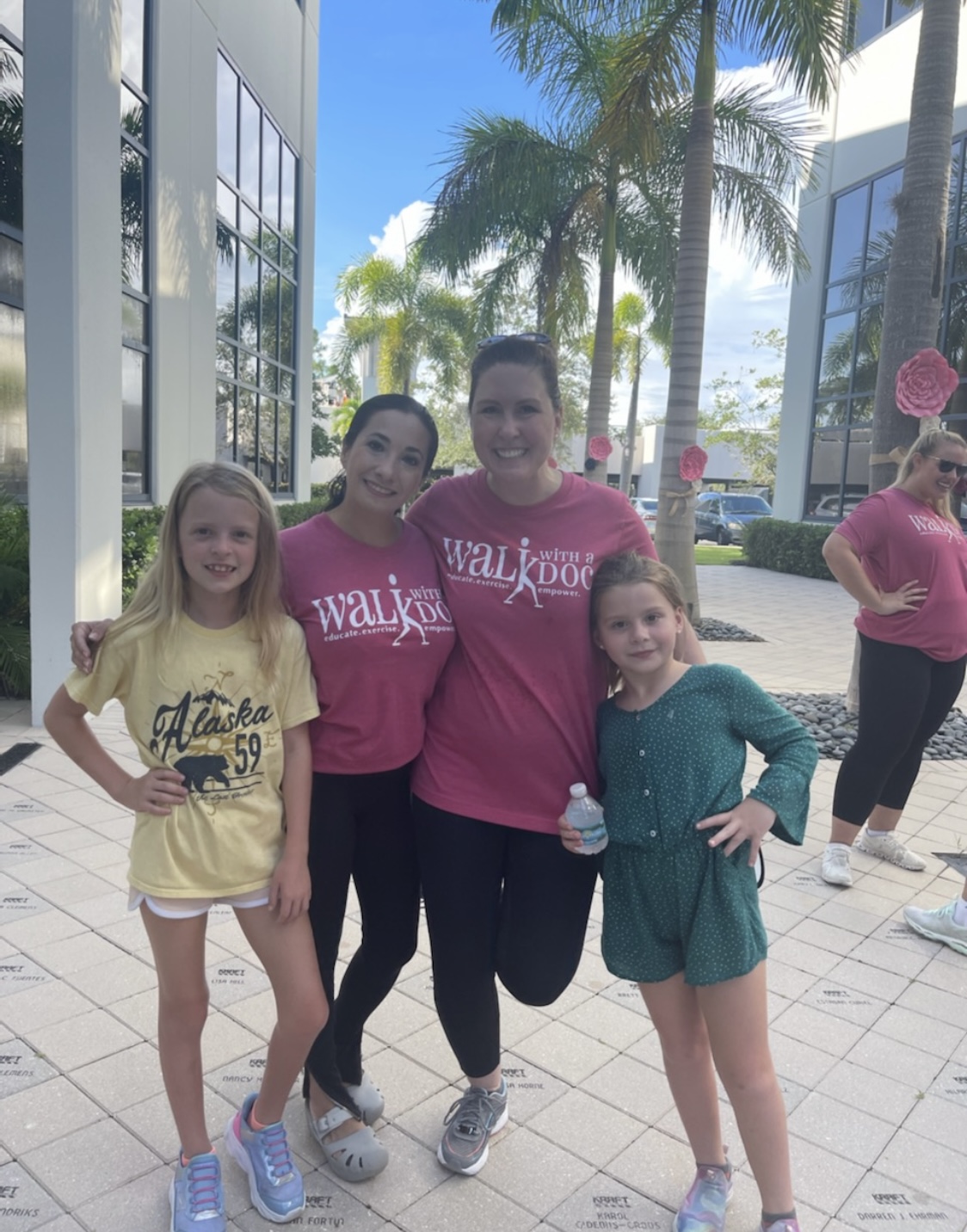
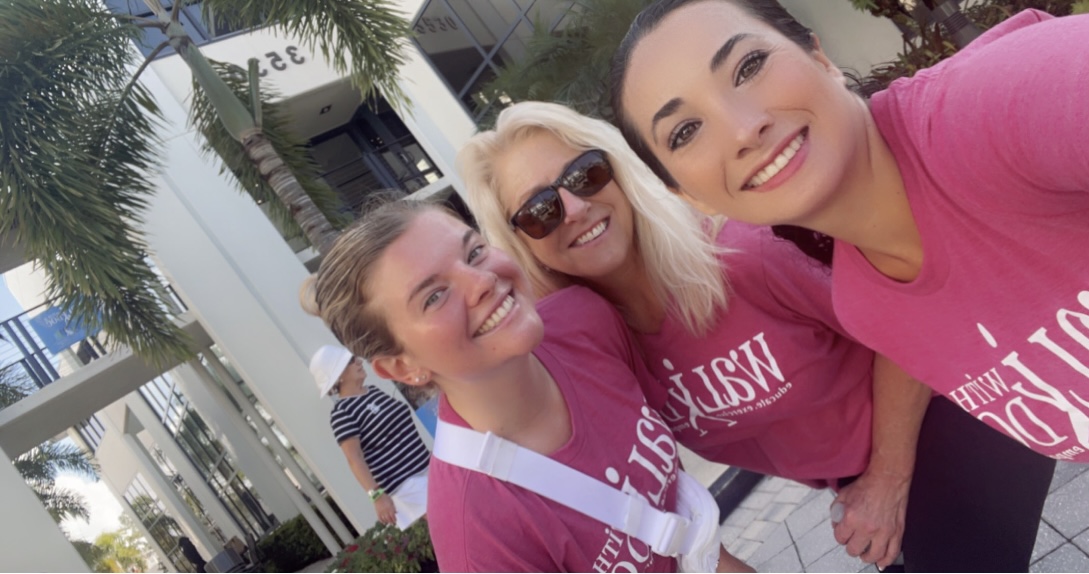
1. Cristol, Hope. “Information and Resources about for Cancer: Breast, Colon, Lung, Prostate, Skin.” American Cancer Society, 17 May 2016, https://amp.cancer.org/.
2. “Physical Activity and Cancer Fact Sheet.” National Cancer Institute, 10 Feb. 2020, https://www.cancer.gov/about-cancer/causes-prevention/risk/obesity/physical-activity-fact-sheet#:~:text=Breast%20cancer%3A%20In%20a%202019,least%20physically%20active%20(28).
3. Pizot C, Boniol M, Mullie P, et al. Physical activity, hormone replacement therapy and breast cancer risk: A meta-analysis of prospective studies. European Journal of Cancer 2016; 52:138-154.
4. Spei ME, Samoli E, Bravi F, et al. Physical activity in breast cancer survivors: A systematic review and meta-analysis on overall and breast cancer survival. Breast 2019; 44:144-152.
5. Moore, et al. Leisure Time Physical Activity and risk of 26 types of Cancer in 1.44 million types of adults. JAMA Intern Med. 2016 June 01; 176(6): 816–825. doi:10.1001/jamainternmed.2016.1548
6. World Cancer Research Fund, American Institute for Cancer Research. Food, Nutrition, Physical Activity, and the Prevention of Cancer: a Global Perspective. Washington DC: AICR; 2007.
